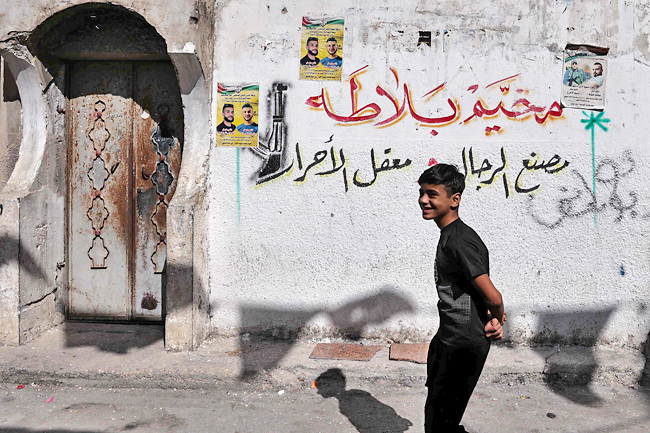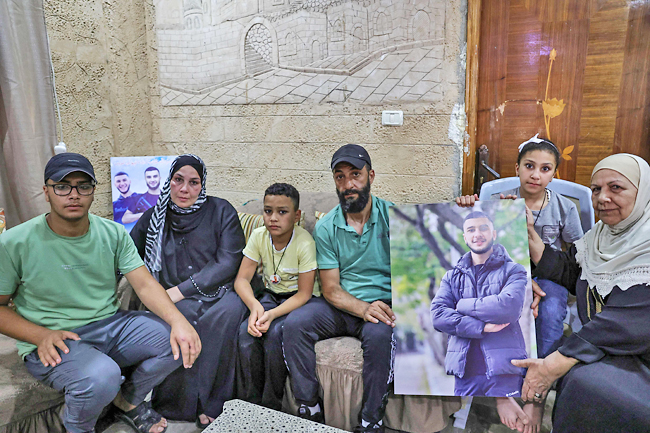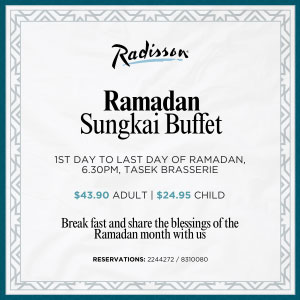BALATA (AFP) – Newly freed from an Israeli prison, Wael Masha rode atop friends’ shoulders through the streets of his West Bank refugee camp before bursting into his home to kiss his mother’s feet.
Less than a year later, those friends carried the 18-year-old’s body through the same streets after Israeli forces killed him in an air strike, describing him as an armed militant who posed a threat to Israeli forces.
His journey was not unique: Masha is one of at least three Palestinians born in the Israeli-occupied West Bank who were arrested as teenagers, released during a brief truce in the Gaza war last November, then killed in intensifying Israeli military operations in the territory.
Israel said its raids and air strikes in the West Bank, which it has occupied since 1967, reflect the scope of the security threat it faces from Palestinian combatants.
His family and others like them say Israel is fuelling the problem it claims to be fighting, arresting young men – Masha was 17 when he was taken into custody – then abusing them in custody, ultimately driving them to seek revenge.
In his will, he instructed his mother: “When you hear the news of my martyrdom, do not cry, but ululate.”
While some memorial posters show Masha brandishing an automatic weapon, his mother remembers him differently.


“He loved studying and repairing computers and mobile phones,” Hanadi Masha told AFP in the family home in Balata refugee camp, east of Nablus, surrounded by pictures of her smiling son.
Perhaps this interest could have turned into a career, she added. But “after he got out of prison, he had a grudge because of everything he saw inside”.
The fallout from the nearly year-old war in Gaza has reverberated across the West Bank, where the Health Ministry said at least 680 Palestinians have been killed by Israeli forces and settlers since Hamas’ October 7 attack.
Israeli officials said 24 Israelis, including troops, have been killed in Palestinian attacks during the same period.
Even before the war, Israeli round-ups of Palestinian men were common, including the one in November 2022 in which Masha was detained. The Palestinian Prisoners’ Club advocacy group said there are at least 250 Palestinians under the age of 18 currently in Israeli custody. “The occupation does not hesitate to arrest children under 18 years old… The widespread arrests have nothing to do with any armed action,” said Hilmi al-Araj of the Palestinian civil society group Hurryyat.
Israeli authorities took Masha to Megiddo prison in northern Israel and sentenced him to two and a half years on charges they never disclosed to his family.
His surprise release came during a weeklong truce in Gaza in November 2023, the only one of the war so far, during which Palestinian militants released 105 hostages seized on October 7, the Israelis among them in exchange for 240 Palestinians held in Israeli jails.
Once out, Masha recounted a host of abuses: being instructed to kiss the Israeli flag, being burned with cigarette butts.
His father Bilal said the experience was “a huge shock” that “changed things completely” for him. “My son entered as a cub and came out as a lion,” he said. Israel has not explained the precise circumstances of Masha’s death, and his parents said they do not know what he was doing when an Israeli strike killed him on August 15.
They only know that the day before the strike Masha said he received a threatening phone call from an Israeli officer warning: “It’s your turn.”
The details are clearer for Tariq Daoud, a second Palestinian teenager who was detained with Masha and released on the same day of the November truce.
Like Masha, Daoud said he was beaten at Megiddo prison, his brother Khaled told AFP at the family home in Qalqilyah, where children wear necklaces featuring his face.
Khaled said the abuse produced false confessions from Tariq – aged 16 when he was arrested – on charges including possessing an illegal firearm and attempting to build explosives.
Incarceration “shattered all his ambitions”, which had included potentially becoming an engineer or a doctor, Khaled said.
Instead he joined Hamas’ armed wing.
In the same week that Masha was killed, Tariq opened fire on an Israeli settler in Azzun, and Israeli troops shot him dead at the scene.
Israeli officials have not yet released his body, but Khaled still visits his plot at the Qalqilyah cemetery every day to water the flowers.
“I go because I feel that there is something of his presence,” Khaled said.
Back in the Balata camp, Masha’s mother Hanadi has found her own ways to honour her son, talking about him with his four younger siblings and stroking pictures of his beard – just like she playfully greeted him when he was alive.





